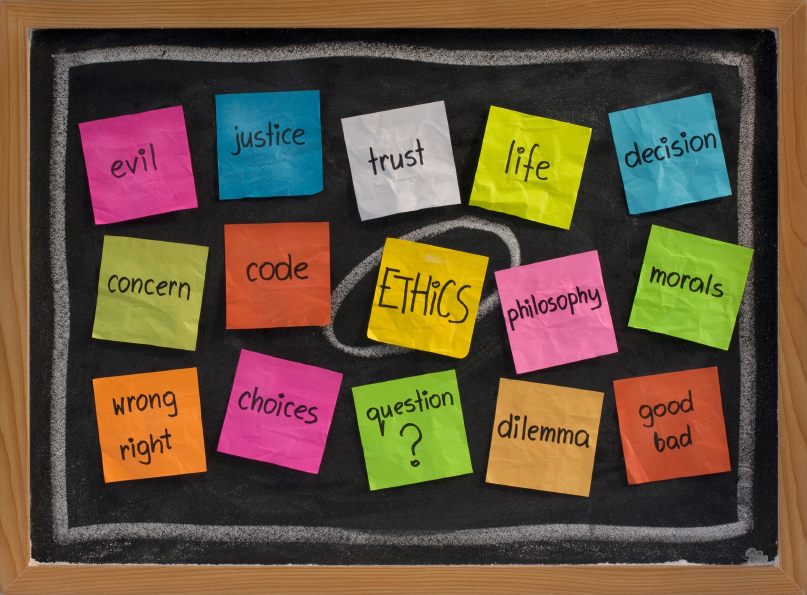In my travels around the treatment universe, I keep running into confusion about what constitutes an ethical issue in counseling, and how to make decisions about conduct. Thought I might take a couple minutes to clarify a few things.
The difference between morals and ethics: Morals are personal and ordinarily reflect our own understanding of right and wrong. When we act immorally, we experience guilt or remorse. The term ethics generally refers to principles imposed on us by society or our culture, or in this case, our professions. Unethical conduct can be expected to carry the risk of criticism or censure from others.
Whether something is legal depends on whether it has been codified by a legal authority, usually a government. The law can reflect professional ethics, but many times it does not. It’s quite possible for a certain type of conduct to be within the law and yet not meet ethical standards.
Teaching ethics is a challenge because most of us regard ourselves as good, law-abiding, right-thinking citizens, and on some level, we think that automatically makes our behavior ethical. It doesn’t. Codes of ethics can be complicated, covering many areas of conduct and requiring interpretation. Here’s a typical code from NAADAC, the national association for addiction professionals.
We also like to rely on our own ‘gut feelings’ and those may reflect our personal morals but not necessarily professional ethics. That’s why it’s good to seek input from supervisors and colleagues when ethical questions arise.
I haven’t met a counselor or therapist who thinks it’s OK to have romantic relations with a client, but things are a lot less clear when it comes to matters such as accepting gifts or favors, taking a second job at another clinic, seeing a client who’s in therapy with someone else, and so forth.
Here’s the advice that I got from a wise preceptor about ethics issues in counseling: when an ethical issue seems like a ‘no-brainer’, it’s probably a ‘brainer’. Ask for another opinion.
More here on Building an Ethical Culture in your organization.













